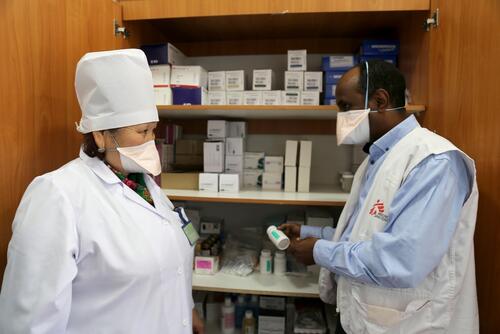
1,800
1,8
670
67
64
64
Tuberculosis (TB) is one of the 10 leading causes of death globally, according to the World Health Organization. The vast majority of these deaths occur in low- and middle-income countries. Strains of TB resistant to the main TB drugs pose an even deadlier threat: only half of patients with multi-drug resistant TB are cured.
In Kara Suu, the largest region in Kyrgyzstan, MSF continues to work with the Ministry of Health in the fight against DR-TB. The project aims to provide outpatient treatment where possible, thereby limiting the amount of time patients have to spend in hospital. Patients receive comprehensive care, including treatment for side effects of the medication, care for any conditions linked to their TB, and social and psychological support. They are given daily observed treatment at smaller clinics, and have a monthly consultation with a doctor at one of the three TB cabinets supported by MSF.
A small group of patients with severe complications receive inpatient care at Kara-Suu hospital. In April 2017, MSF started using two new drugs – bedaquiline and delamanid – as part of the endTB observational study to treat patients who have been diagnosed with extensively drug resistant TB (XDR-TB) or pre-XDR-TB.
In Aidarken, Batken oblast (province), MSF is supporting the Ministry of Health to deliver better care for non-communicable diseases, as well as helping improve mother and child healthcare. In parallel, MSF is assessing the possible impact of heavy metal pollution on public health.


















